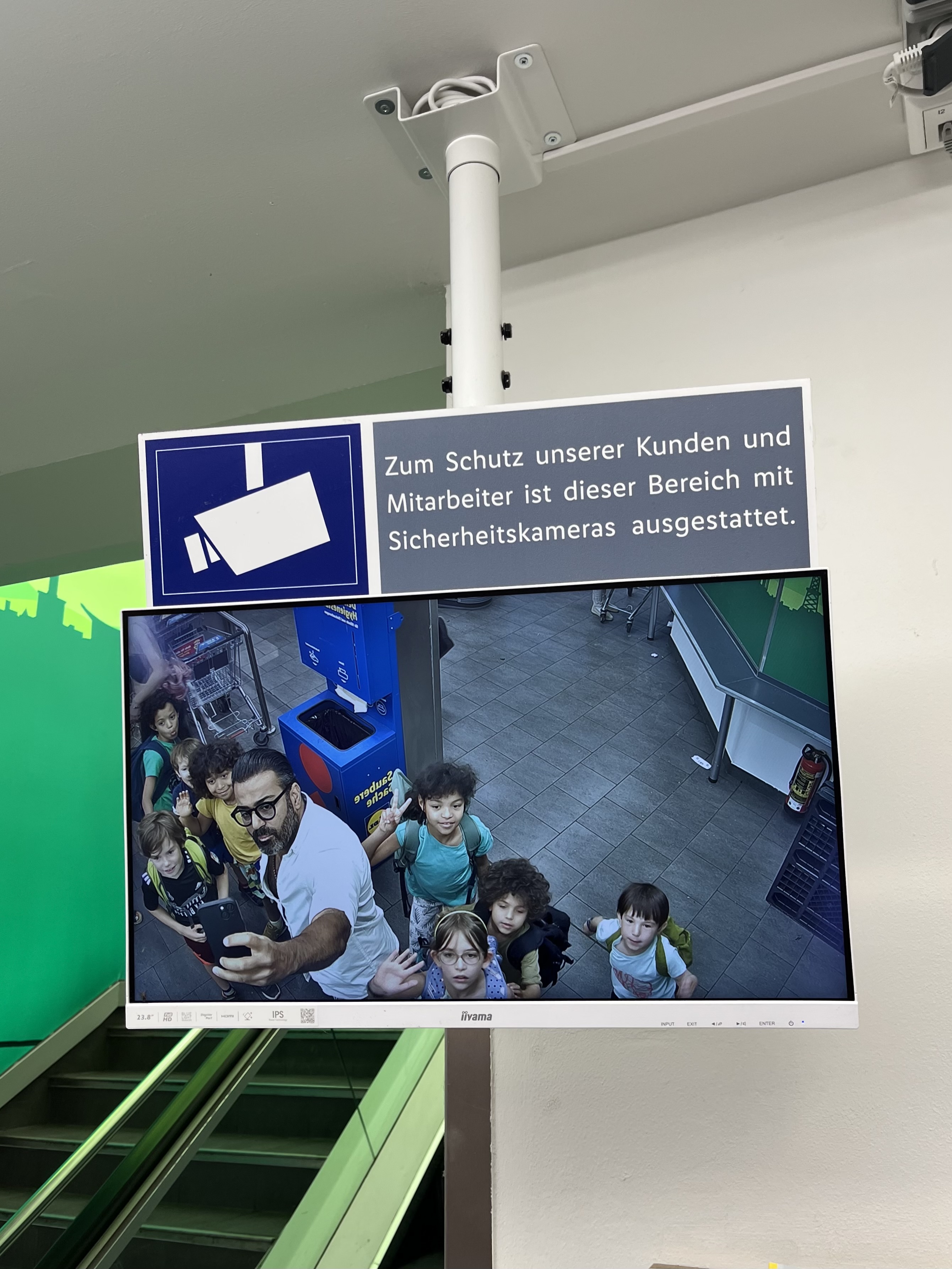Kids Kultur
The Body, Mind & Soul Concept
KidsKultur is a child-centered, holistic educational program for children* aged six to eight, designed to provide access to the cultural world of adults. KidsKultur views all children as:
- Capable of rational thinking (Mind)
- Physically active and engaged (Body)
- Able to find their own spiritual balance and regulate their emotions (Soul)
These three areas overlap, are interdependent, and influence each other.
By considering the Mind-Body-&-Soul concept, children in small, constantly changing focus groups gain access to the adult cultural world for exploration. KidsKultur provides children with opportunities for self-efficacy, experimenting with new ideas, self-reflection, and the development of individual thinking and self-expression through monthly themes and weekly cultural events.
CultureKids thus gain early understanding of ideas, traditions, values, and norms of their society. KidsKultur offers rare access to spaces and institutions and introduces children to useful methods, techniques, and documentation and presentation methods, bringing them back to public spaces.
*KidsKultur is an independent program and is not affiliated with schools or daycare centers. KidsKultur supports all children regardless of gender, economic, cultural, or religious background.
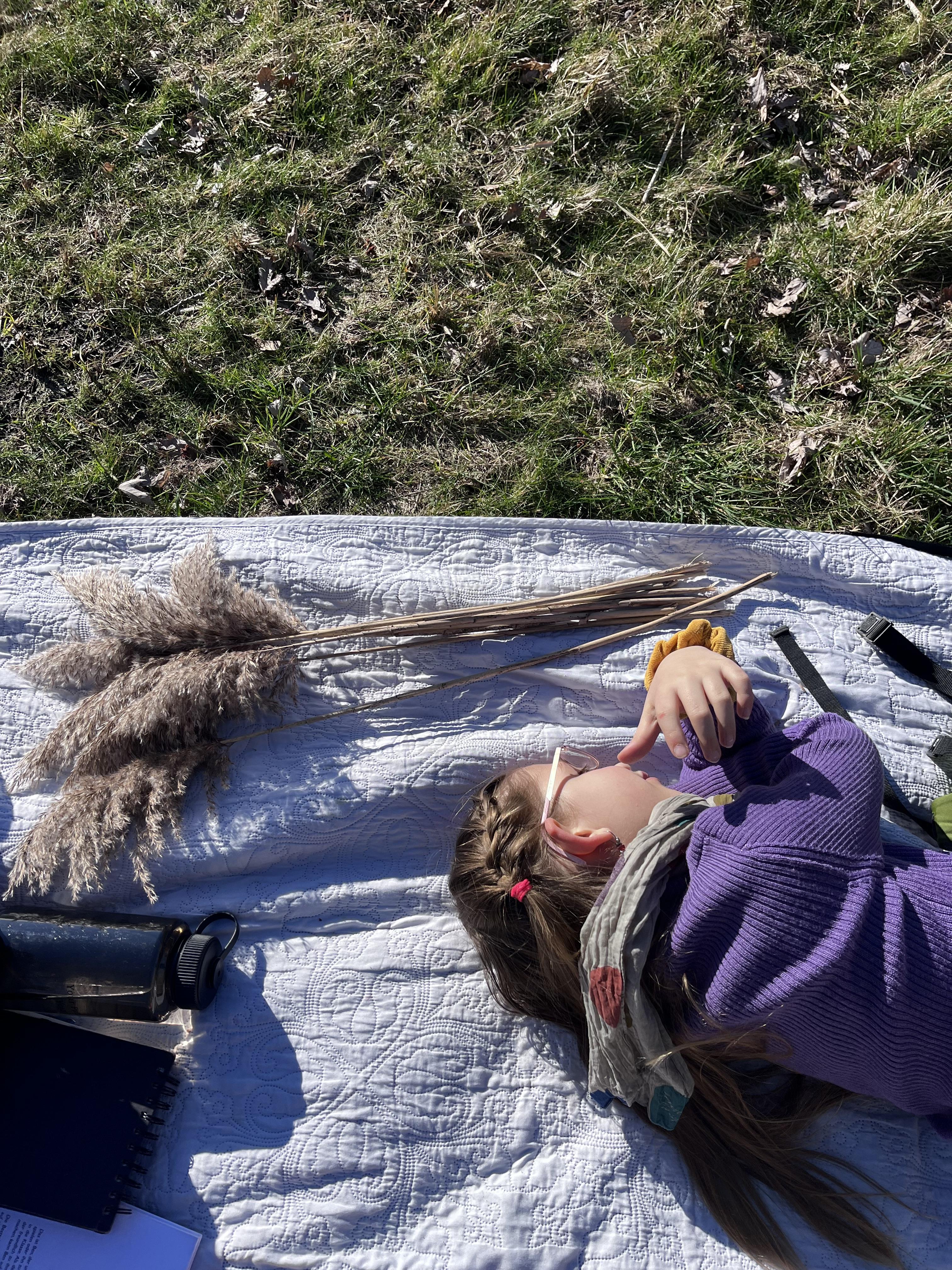
Circle Time
Every activity begins and ends with a circle ritual. Our circle times are different from what children usually experience in daycare: they are used to welcome new children, discuss important and current topics, discuss, develop and establish rules according to each situation and location and help us to relax. During circle time, we do breathing exercises, discuss challenges and conflicts, meditate and visualize, have discussions, brainstorm ideas, and plan routes and strategies. Circle times allow us to come together as a group and accomplish so much more.
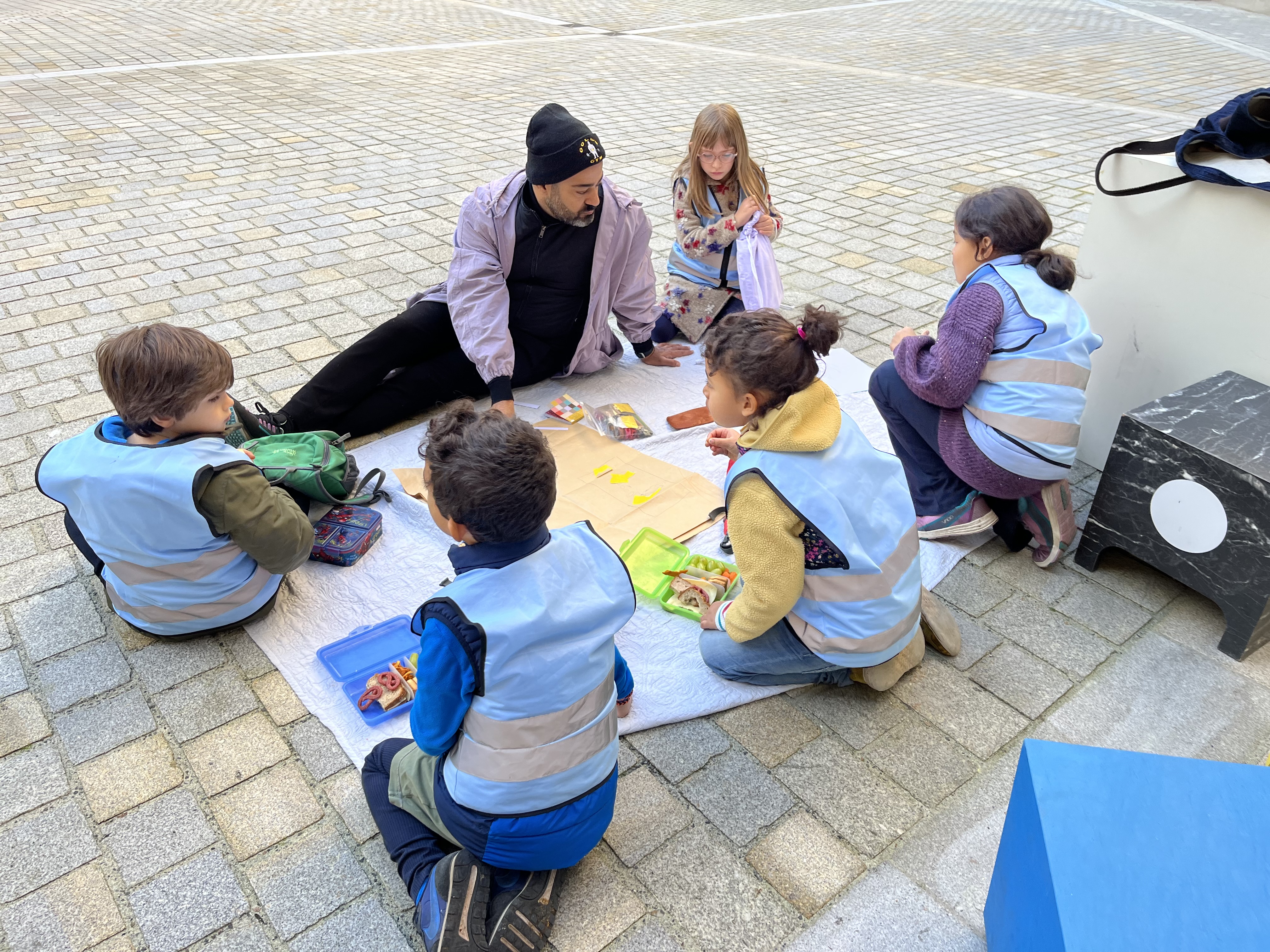
Space Evaluation
Space evaluations help us navigate environments where children are often not considered. Most spaces we visit are frequently avoided by adults, daycares, and school staff because they are deemed "unsuitable" for children. Space evaluations raise our awareness of the space and the mindset of its designers. It involves a careful exploration of unfamiliar places and a conscious perception of the space. This is particularly important for spaces that might intimidate or overwhelm children due to their size or structure. Evaluations help us determine what aspects we need to pay particular attention to. They also train our sense of scale, proportion, usage, and construction. Each space evaluation forms the basis for the rules that the group collectively establishes for the new space and situation.
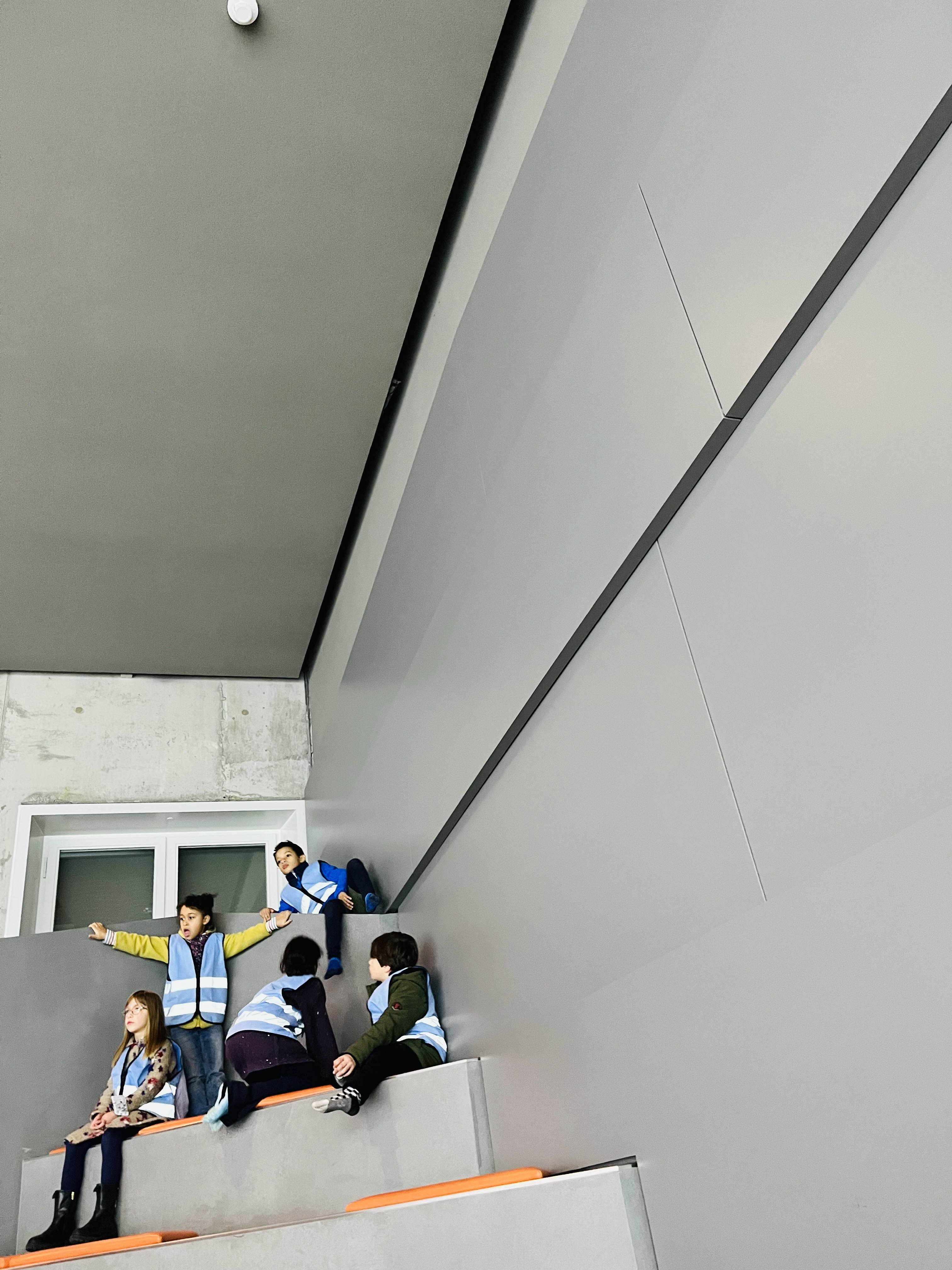
Station (D’Amico Blanket)
Stations are moments on a blanket—our now widely copied D’Amico Blanket, named after the renowned educator and art teacher Victor D’Amico—where children engage with their surroundings using craft and painting supplies. We also set up a station for food and drinks. The children decide when, where, and how often they want to use these stations.
The blanket serves as a reference point and orientation aid in large spaces, allowing me as an educator to be easily accessible to the children even if they are moving around separately in expansive areas. Thanks to the D’Amico Blanket, we can be flexible and make ourselves comfortable anywhere. The blanket is also used for resting and reading, and it's where new methods are introduced or presentations are made. A little home for 5 hours!
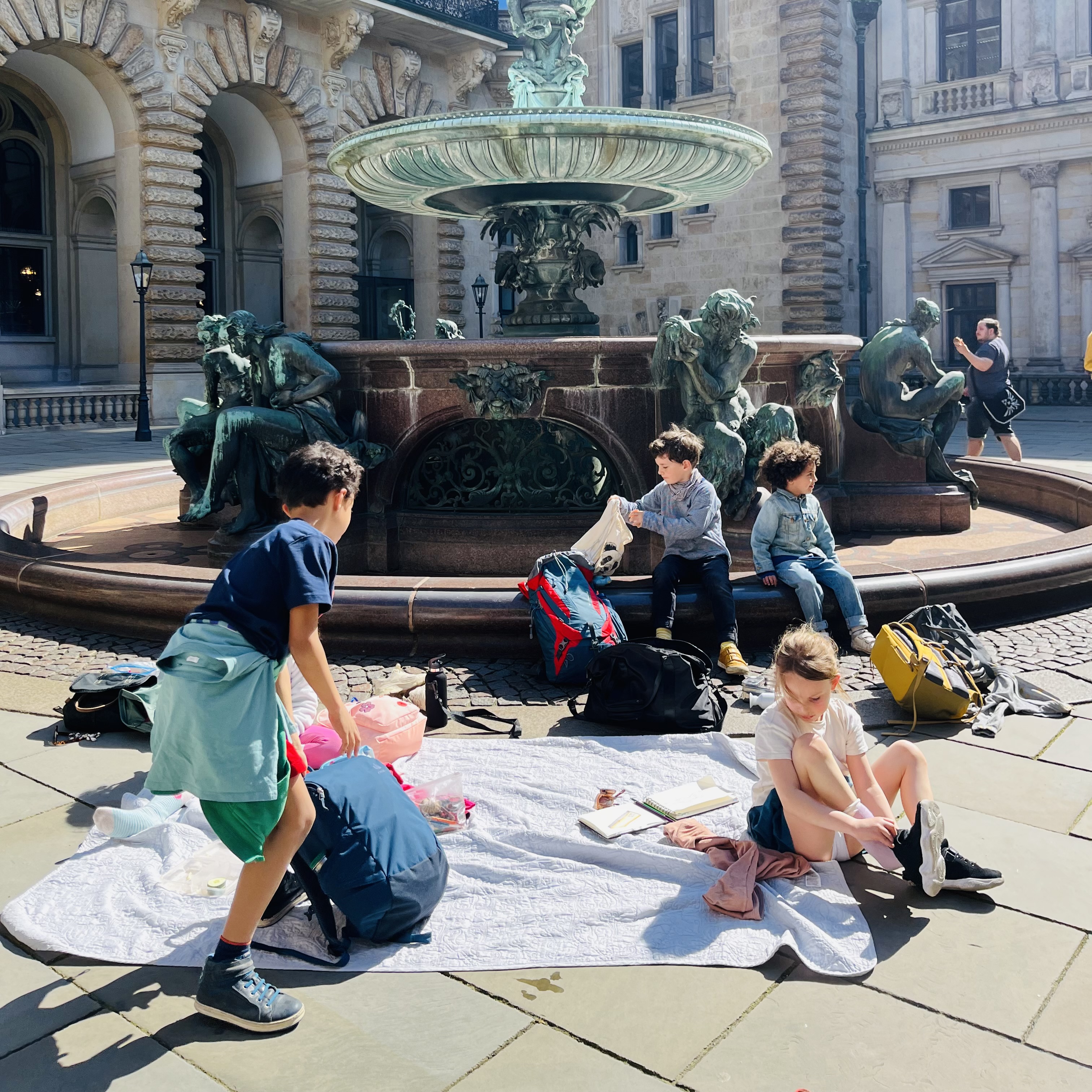
Personal Sketchbook
Every child receives a sketchbook as a gift during their first visit. This is our welcome ritual. The other "experienced" KulturKids then open their sketchbooks to show the new child what they have drawn or created inside and what can be done with it. KulturKids are encouraged to bring their sketchbooks to all activities. The idea for the KidsKultur Sketchbook originated in 2020 from the children themselves, inspired by discussions about the iconic works of photographer Peter Beard and his infamous sketchbooks.
The sketchbook is an essential part of every KidsKultur exploration. The importance of the sketchbook as a too, cannot be emphasized enough:
- A Safe Space: The sketchbook provides a safe space for the child's intimate thoughts and ideas.
- Home Integration: The sketchbook can be expanded at home, helping the child weave internal themes with the outside world.
- Sharing and Presentation: A sketchbook can be shared and used to present and discuss ideas.
- Responsibility: The child takes responsibility for their own sketchbook and attributes importance to what is recorded within it.
- Creativity and Skill Development: The sketchbook fosters creativity as well as craft and artistic skills.
- Future Uses: The pages of the sketchbook often become future posters, postcards, and mind maps for the entire family.
- Aesthetic and Documentation Value: Sketchbooks not only have high aesthetic value but also serve to document learning achievements and memories.
- Literacy and Cognitive Development: The sketchbook promotes literacy and cognitive development.
- Active Use: The sketchbook is actively used to capture ideas or present them to other children.
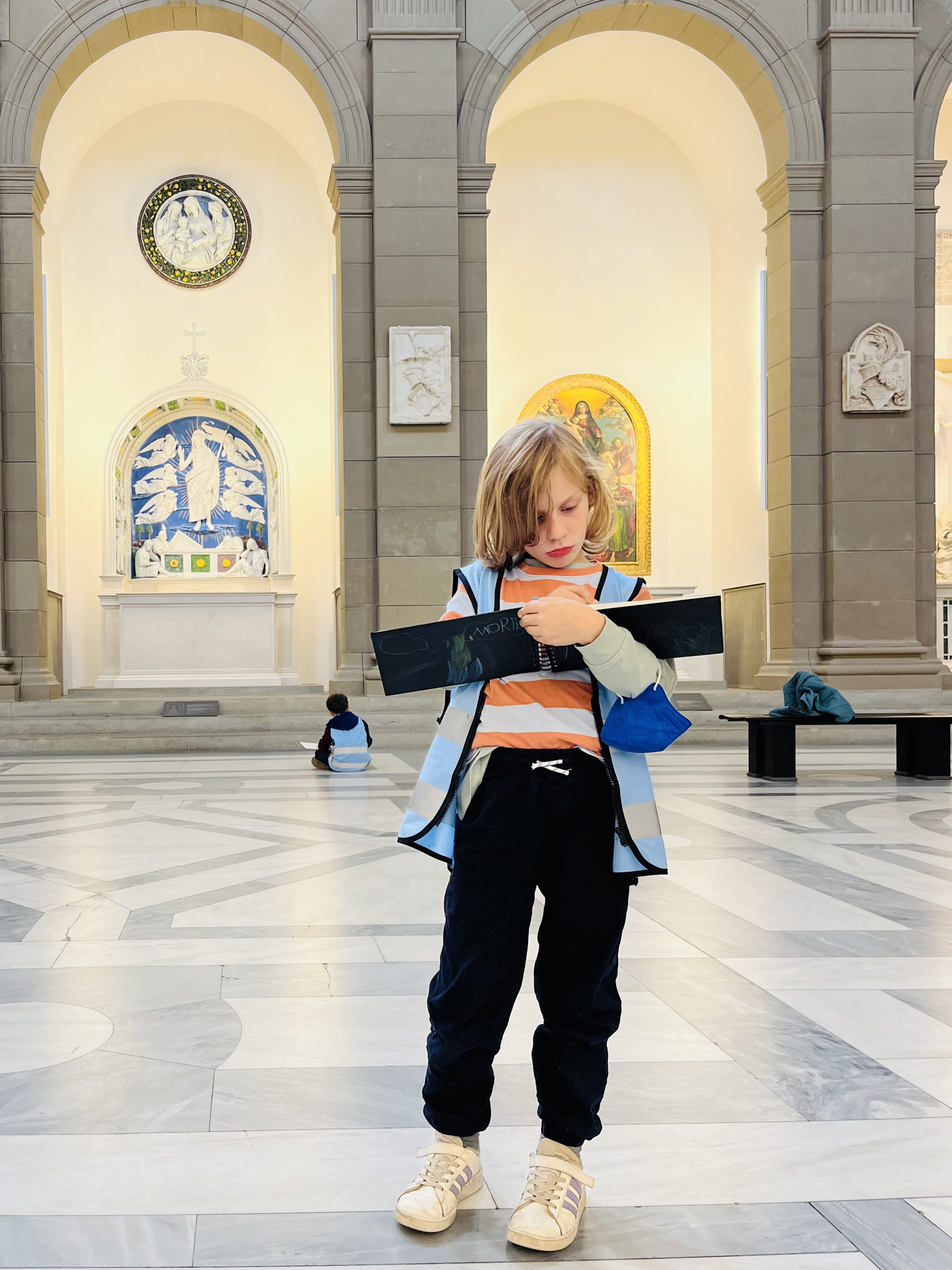
With Public Transport, the Journey itself is a Destination
With public transport, the journey is the destination. At KidsKultur, we take our time on the rides! Impressive buildings, a large construction site, a huge playground, a statue, or a flower meadow—all are good reasons to get off the bus or train.*
Traveling by public transport offers children the opportunity to explore different parts of the city and gain insights into various lifestyles and cultures. As children participate in planning routes and adhering to schedules, they develop a good sense of time management and their organizational skills are enhanced.
Early use of public transport helps KulturKids become confident, independent, and responsible while learning about the diversity and dynamism of their urban environment. It helps them develop strong social skills from an early age by exposing them to people from all walks of life and conversations they either listen to or are encouraged to participate in.
Moreover, interacting with other passengers and transport staff helps develop social skills such as politeness, consideration, and communication.
Using public transport also contributes to KulturKids' safety awareness, teaching them to navigate urban environments safely and respond appropriately in emergencies. This fosters their cultural understanding and appreciation for the diversity around them.
We often use the trips to work on our sketchbooks, listen to stories, and introduce new topics (which always delights passengers and fellow commuters)!
*Parents need not worry, as they can track us in real-time through live location on their phones!
